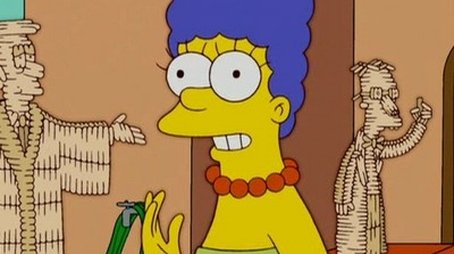
Sorry, we have not watched this yet.

Homer is fired and decides to buy an ice-cream truck. Marge makes use of the mountains of Popsicle sticks from Homer's ice-cream consumption by creating sculptures of Springfield citizens with them, leading to a feature about her on the news.
Sorry, we have not watched this yet.